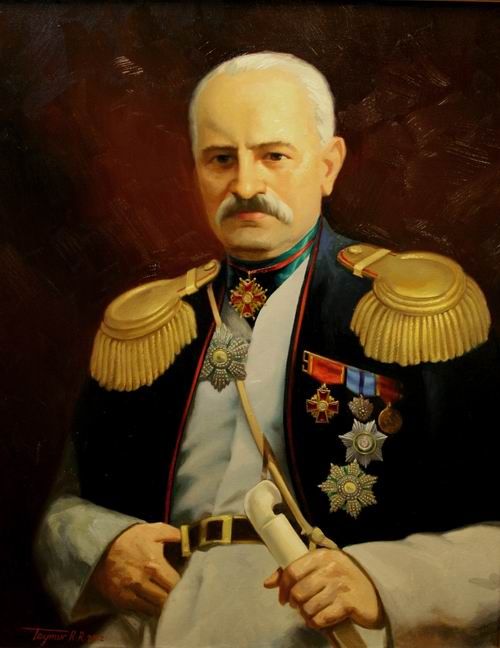Mirza Fatali Akhundov - founding father of Azerbaijan’s enlightenment movement

By Vugar Khalilov
The XIX century was marked by significant public, social and political transformations triggered by new discoveries, original ideas, and the enlightenment movement designed to fight against bigotry and conventional wisdom in Azerbaijan.
Growing up under this socio-political transformation, dramaturgist and public figure Mirza Fatali Akhundov saw an opportunity to usher in a new literary period by introducing western culture and ideas into the Azerbaijani literature and public life. He was the enlightenment movement's founding father and a pivotal figure in Azerbaijan.
The outstanding Azerbaijani intellectuals were aware of the social, political, economic, and cultural issues facing the country and made concerted efforts to address them.
Literary and public activities
Akhundov is regarded as Azerbaijan's first realist dramatist, novelist, and literary critic. With the publication of a poem on the death of Russian poet Aleksandr Pushkin in 1837, he was the first author to employ a western form in eastern poetry. Later, beginning in 1850, he wrote western-style comedies.
For over 40 years, Akhundov's literary and political contribution fostered the spiritual growth of the Azerbaijani people. He became renowned as the leading enlightenment movement theorist and a significant public activist, not just in Azerbaijan but throughout the whole East.
Akhundov employed the Russian scientific and cultural milieu as a conduit in order to infuse Azerbaijani writing with the democratic spirit of western spirituality and culture. Akhundov read great Russian and European authors such as Griboyedov, Pushkin, Gogol, Shakespeare, Molière, Voltaire, and Montesquieu.
He was almost the first reformer of the Muslim world, according to literary historian Firidun Bay Kocharli, who also praised Akhundov's efforts as a dramaturgist and public reformer. He was the first to dismantle the outdated, corrupt underpinnings of Muslim life to fight tooth and nail to alter the norms that hindered Islam's advancement, Khocharly said.
Akhundov established the groundwork for dramaturgy not only in the Azerbaijani literature but also in the Turkic-Muslim world from the Balkans to India by writing his six great plays between 1850 and 1855. With his comedies, the great master provided a model for writing plays in the Eastern world. It is well-known proof that dramaturgy in the Turkic-Muslim world developed in the light of Akhundov's dramaturgy traditions.
The enduring comedies of Akhundov served as the foundation for Azerbaijani theater. In 1873, Hasan Bay Zardabi together with Najaf Bay Vazirov staged the famous play Haji Kara play in one of Baku schools and laid the foundation of the theater movement in Azerbaijan and in the Turkic-Muslim world in general.
The comedies were inspired by Azerbaijani realities. The people were all local in terms of personality types, modes of thought, dress, and dialect. The local and vibrant dialects of the area had an impact on the linguistic design of comedies as well.
Comedy was one of the most effective genres for fighting the harsh realities and drawbacks of social life that caused disaster in society. Comedy was a great tool to lampoon these realities and encourage viewers to do the same while also fighting back against them. By using comedy as a corrective force in his own critical way, Akhundov exposed the severe defects in society.
In addition to plays and a novella, Mirza Fatali Akhundov also authored articles and other works with social, ethical, economic, and philosophical content.
ABC reform
By utilizing Russia and western Europe as precedents, Mirza Fatali Akhundov sought to promote local culture. He believed that mass education was essential to achieving it. He believed that such a significant task first required modifications to the Arabic script, which at the time was used in Azerbaijani and Persian.
He eventually decided against using the Arabic alphabet and created a new Latin alphabet for Azerbaijan instead. Despite Akhundov's extensive efforts, the Latin alphabet was not adopted during his lifetime. However, it became real in the 20th century when the independent Azerbaijani Republic chose it as its official alphabet.
Mirza Fatali Ahkhundov eliminated the outmoded, decrepit clichés and replaced them with fresh, democratic ideals as both an author and a reformer.
---
Follow us on Twitter @AzerNewsAz
Here we are to serve you with news right now. It does not cost much, but worth your attention.
Choose to support open, independent, quality journalism and subscribe on a monthly basis.
By subscribing to our online newspaper, you can have full digital access to all news, analysis, and much more.
You can also follow AzerNEWS on Twitter @AzerNewsAz or Facebook @AzerNewsNewspaper
Thank you!
